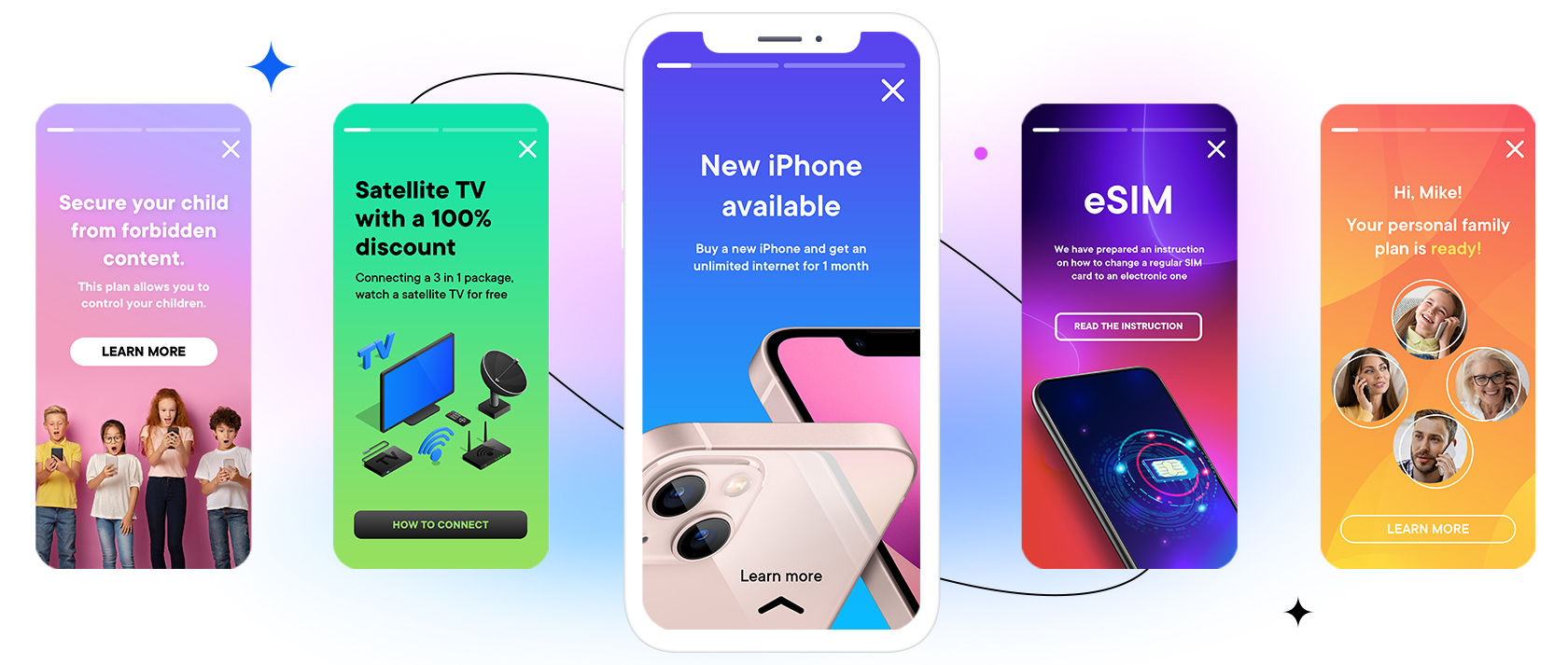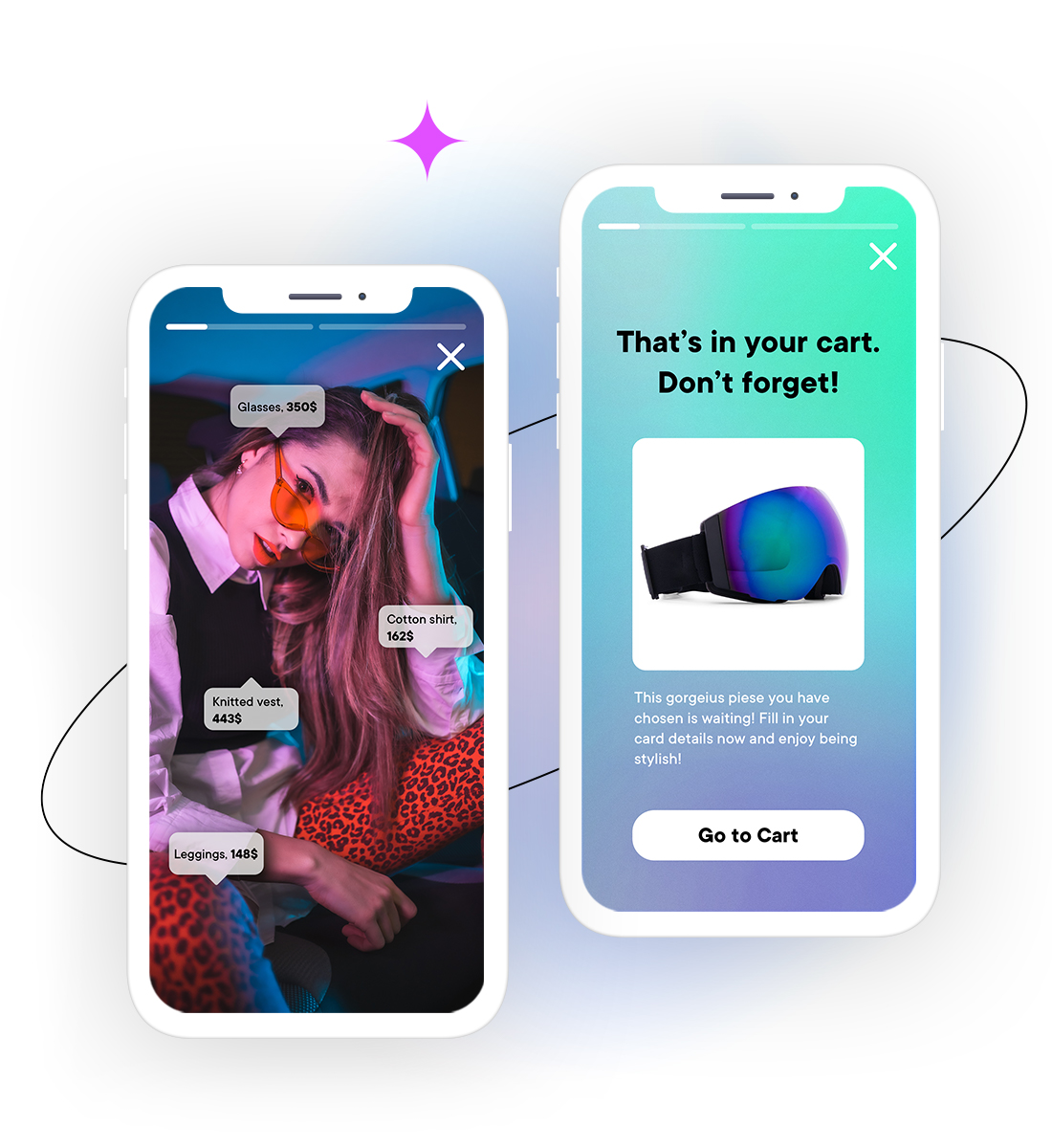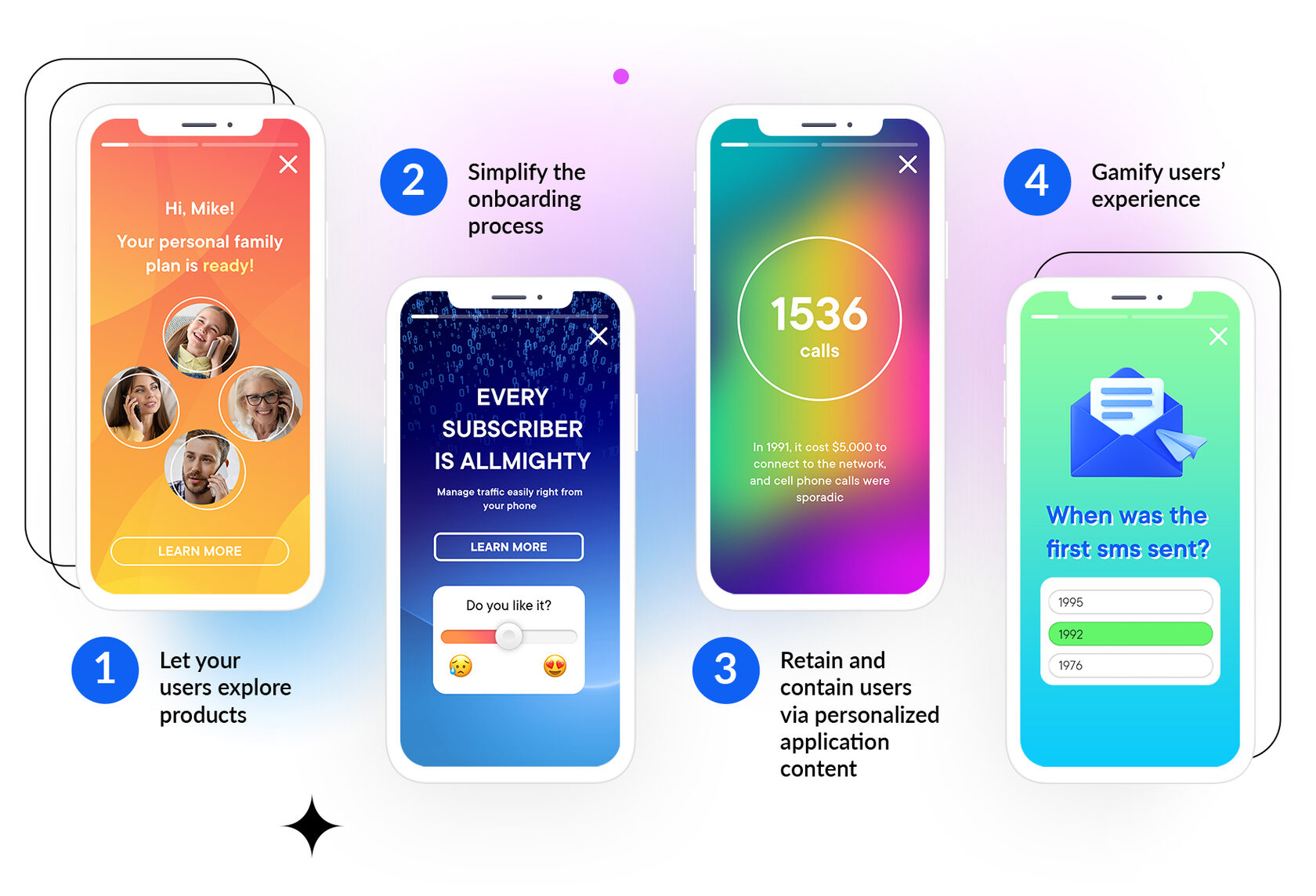.jpg?2026-02-17T14:47:30.411Z)
When Leroy Merlin ran out of hands, InAppStory became the extra ones

What Is In-app Story & How Important Is It For Businesses?
Mark Polskii
Author @ InAppStory
Mobile app stories are short, ephemeral content modules that have gained immense popularity on social media platforms and are now permeating various other mobile applications. They often take the form of a series of photos, graphics, or brief videos that can be augmented with text, stickers, filters, and other interactive elements. Typically, these stories appear in a sequential, slideshow-like format and disappear after a set period, usually 24 hours.
Similar to social media stories, mobile app stories provide users with bite-sized, digestible content that keeps them informed and engaged. They are an efficient way of delivering information without overloading the user or demanding significant time investment.

Mobile app stories can cover a variety of topics. They might showcase new product features, offer tutorials, display user-generated content, or simply provide a fresh and engaging way to communicate with the user base.
The central feature of mobile app stories is their transience. The short-term nature of stories creates a sense of urgency and fosters user engagement, as users are aware that the content won't be available indefinitely. This, in turn, encourages more frequent app usage and allows businesses to maintain a steady communication flow with their users.
A Brief History of Mobile App Stories
The origin of mobile app stories can be traced back to social media platforms, with Snapchat pioneering the format in 2013. However, Instagram was the platform that truly popularized the story format when it introduced its own version in 2016, leading to an explosion of usage and recognition for the format.
The story format started to spread beyond social media around 2017, with companies like Spotify unveiling their take on stories with the Spotify Wrapped 2017 campaign. These stories offered annual highlights of user listening habits, providing a fresh, engaging way to interact with the app. The adoption of the story format by these applications marked a significant shift and opened up a new frontier in app user interface design and user engagement strategies.
Since then, numerous other apps, including those outside the realm of social media, have started experimenting with their own versions of stories. For example, companies like Uber Eats and Flo, though not fully globally implemented, have begun testing stories as a means of user engagement. The story format is still evolving, with more and more companies finding unique ways to incorporate it into their apps, leading to a myriad of diverse applications for the format.
Why Companies Even Need Mobile App Stories?

In today's digitally connected world, engagement is the key to maintaining user interest and driving growth. As the digital landscape becomes increasingly crowded, businesses must find innovative ways to attract, retain, and engage users. This is where mobile app stories come into play.
Mobile app stories offer a novel and engaging means of communication that brands can utilize to connect with their users on a more personal and intimate level. Their transient nature creates a sense of urgency, prompting users to view them before they disappear, thus fostering regular app usage. They offer a dedicated space where brands can communicate directly with their users in a manner that is native and intuitive.
Additionally, stories offer a platform that captures 100% of the user's attention, which is hard to achieve with other marketing channels. By leveraging full-screen visual content, stories enable brands to present important updates, promotional content, or relevant information in a manner that is more engaging and effective compared to traditional methods.
For example, a brand might use stories to introduce a new feature, share success stories, offer a sneak peek into upcoming events, or simply to maintain a steady flow of communication with the users. They can be tailored to suit the brand's personality, creating a unique brand experience that can foster a stronger connection with the users.
Moreover, stories offer an avenue for user-generated content, allowing users to contribute their own stories and increasing engagement through interactive experiences. This enhances the sense of community within the app, making users feel more involved and connected.
Five Reasons How Mobile App Stories Help Businesses

Mobile app stories present numerous advantages for businesses. Here are five key ways in which they can enhance a company's digital strategy and drive user engagement:
- Increased User Engagement: As stories are short and transient, they create a sense of urgency and curiosity among users, encouraging them to interact with the app more frequently. This increased engagement not only enhances user retention but can also lead to higher conversion rates.
- Direct Line of Communication: Stories provide a unique, full-screen platform for businesses to communicate directly with their users. They can be used to share important updates, showcase new features, or even respond to user feedback, fostering a sense of connection between the brand and the user.
- Enhanced Brand Personality: Through stories, businesses can express their brand personality in a more informal and authentic manner. Whether it's behind-the-scenes content or a spotlight on team members, stories offer an opportunity to present the human side of a business, which can help establish a stronger emotional connection with users.
- Platform for User-Generated Content: Stories can also serve as a platform for user-generated content, where users can share their own experiences or feedback. This not only enriches the content on the app but also enhances user engagement and fosters a sense of community.
- Optimized Marketing Strategies: Compared to other marketing channels, stories can provide higher visibility and engagement due to their prominent placement and full-screen format. They can be used to run targeted promotions, announce limited-time offers, or showcase success stories, making them a highly effective tool in a business's marketing toolkit.
Stories are not just a trend, but an essential component of a modern digital strategy. By integrating stories into their mobile apps, businesses can create a more engaging and dynamic user experience, ultimately driving growth and success in the digital realm.
All in all
As digital landscapes continue to evolve and become increasingly competitive, businesses must adapt and innovate to maintain user engagement. Mobile app stories have emerged as an effective solution to this challenge, offering a unique, dynamic, and engaging way for businesses to connect with their users.
Starting from their inception on social media platforms, stories have since permeated various mobile applications, reflecting their versatility and wide appeal. They serve as a direct line of communication between businesses and users, fostering a stronger connection and higher engagement.
Moreover, mobile app stories allow businesses to showcase their brand personality, encourage user-generated content, and optimize their marketing strategies. By doing so, they not only create a more immersive and engaging user experience but also drive business growth.

